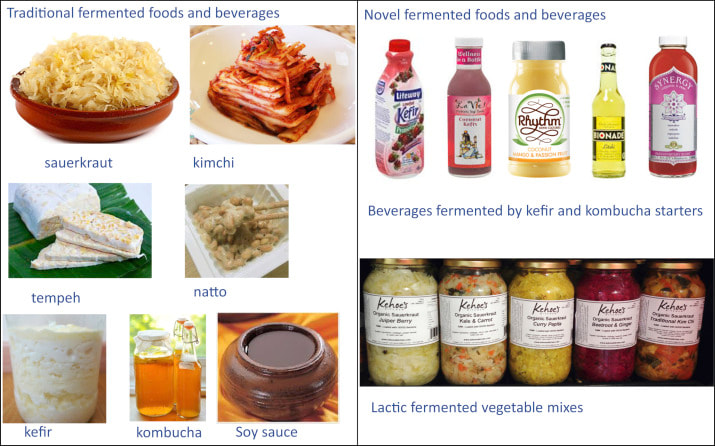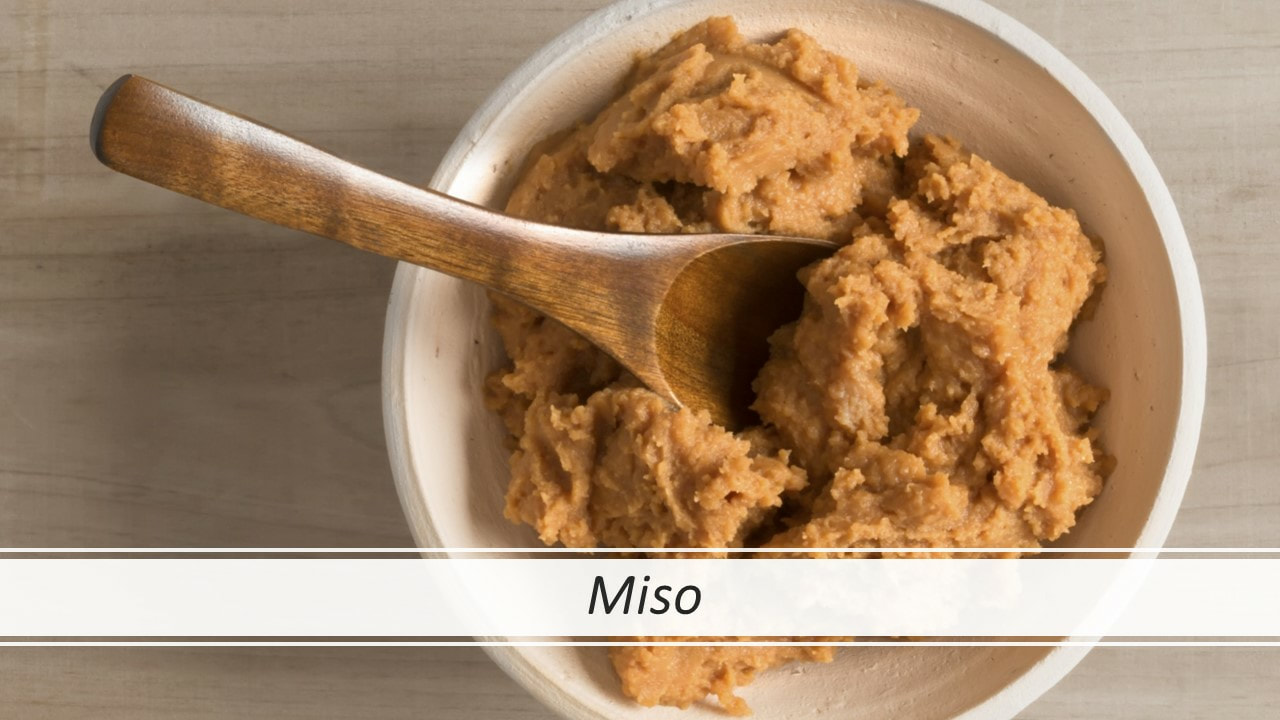|
Fermented foods seem to be all the rage lately, but these foods have been a staple in many diets for centuries. The health and type of bacteria present in the gut is the basis for good gut function and health, particularly a healthy immune system. The average person has between two and four kilograms of bacteria in their large intestine and these bacteria have very important tasks. Good digestion and gut health are founding principles of good health, and fermented foods can go a long way to help improve the ratio of beneficial gut bacteria. So if you have Crohn's (and we do) this is just another tool that you can add to your TOOL KIT. Image Courtesy of Science DirectHere are some of our favorite fermented foods that are easy to incorporate into your meals each day: Sauerkraut Sauerkraut is lacto-fermented vegetables, traditionally cabbage, meaning that it is fermented using primarily the lactobacillus strains of bacteria. Bacteria eat up the sugars in the vegetables and leave behind lactic acid which is what preserves the vegetables. The benefit of this process is that the lactobacillus bacteria are also left behind, helpful bacteria for the human gut. The fermentation process also makes the vegetables easier to digest and preserves the nutrients and enzymes present in the vegetables. Sauerkraut can be added to salads at lunch, eaten along side dinner, eaten with eggs at breakfast or on its own as a snack. There are many different types of sauerkraut on the market, ones made from cabbage, beetroot, cauliflower, and carrots. Or you can make your own! Kim Chi Kim Chi is a Korean version of sauerkraut, it is made with cabbage, bok choy, radishes, chili and ginger. Many people enjoy Kim Chi in veggie broths, with stir-fries or as an accompaniment to fried rice. Kombucha Kombucha is fermented tea. It is made using black and green tea with sugar and a starter culture. It is fermented for 10-14 days over which time the bacteria in the culture eat (use up) the sugar leaving behind a subtly sweet and sour fizzy drink. Kombucha is an easy way to add a dose of good bacteria to your diet. The Dr Libby Team likes to have a few bottles stored in the office fridge for the late afternoon, and some of us choose to start our day with a glass of kombucha, too. If buying kombucha look out for brands that are made using natural ingredients (no preservatives), and brands that don’t add sugar post fermentation. You want the sugars to be used up during the fermentation process. Some yummy options are kombucha with ginger or turmeric added to it. Miso Miso has a wonderfully savoury flavour and can be used in broths, soups, or in dressings. It is produced by fermenting soybeans with salt and fungus. Miso supports the good bacteria present in the gut and is a source of B vitamins and several antioxidants, both of which are needed for great energy and to reduce inflammation in the body. Be sure not to heat the miso too much as it kills off some of the helpful bacteria. Stir it into warm liquids to keep the beneficial bugs alive. When purchasing miso paste look for a non-pasteurised version to be sure you are getting the benefits of the bacteria. TIP: Look for organic fermented foods so that artificial substances don’t potentially interfere with the production and quality of the beneficial bacteria in the foods. If you have any more questions then please free to email me at [email protected] or visit my Facebook Page at My Crohn's Doctor. Yours in Health and Wellness Dr Michael My Crohn's Doctor www.mycrohnsdoctor.com LEGAL DISCLAIMER - This article (including links to any/all website pages, blog posts, blog comments, forum, videos, audio recordings, etc.) is not intended to replace the services of a physician, nor does it constitute a doctor-patient relationship. Information is provided for informational purposes only and is not a substitute for professional medical advice. You should not use the information for diagnosing or treating a medical or health condition. If you have or suspect you have an urgent medical problem, promptly contact your professional healthcare provider. Any application of the recommendations in this email is at the reader's discretion. My Crohn's Doctor and Dr Michael are not liable for any direct or indirect claim, loss or damage resulting from use of this email. Readers should consult their own physicians concerning the recommendations in this article.
0 Comments
Leave a Reply. |
|







